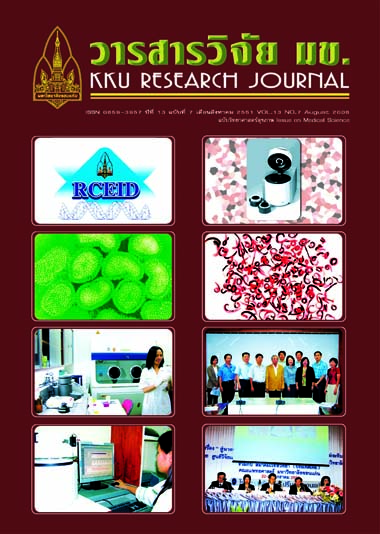A study of village health volunteers' knowledge and daily living behavior on the stroke (Thai)
Main Article Content
Abstract
The best policy for combating stroke is primary prevention by educating the public to raise awareness
of stroke and to discourage inappropriate lifestyle. The knowledge related to stroke should be raised among
village health volunteers (VHVs), who have a role to disseminate knowledge about health care to villagers in
their areas of responsibility. The purpose of this study was to study the VHVs’ knowledge and daily living
behavior concerning strokes. Data were collected by means of a questionnaire distributed to 288 northeastern
VHVs. The results revealed that most VHVs had a high level of knowledge concerning strokes and had
appropriate behavior and lifestyle in preventing strokes. However, they misunderstood some points about
strokes. This study provides a database which may be used for conducting planning programs for empowering
VHVs about stroke prevention.
Article Details
How to Cite
Nualnetr, N., Wannakul, P., Rukyutithamkul, S., Chantaloet, U., Petchto, B., Poncomhuk, P., & Wanpen, S. (2017). A study of village health volunteers’ knowledge and daily living behavior on the stroke (Thai). Asia-Pacific Journal of Science and Technology, 13(7), 807–818. retrieved from https://so01.tci-thaijo.org/index.php/APST/article/view/83645
Section
Research Articles
References
-


